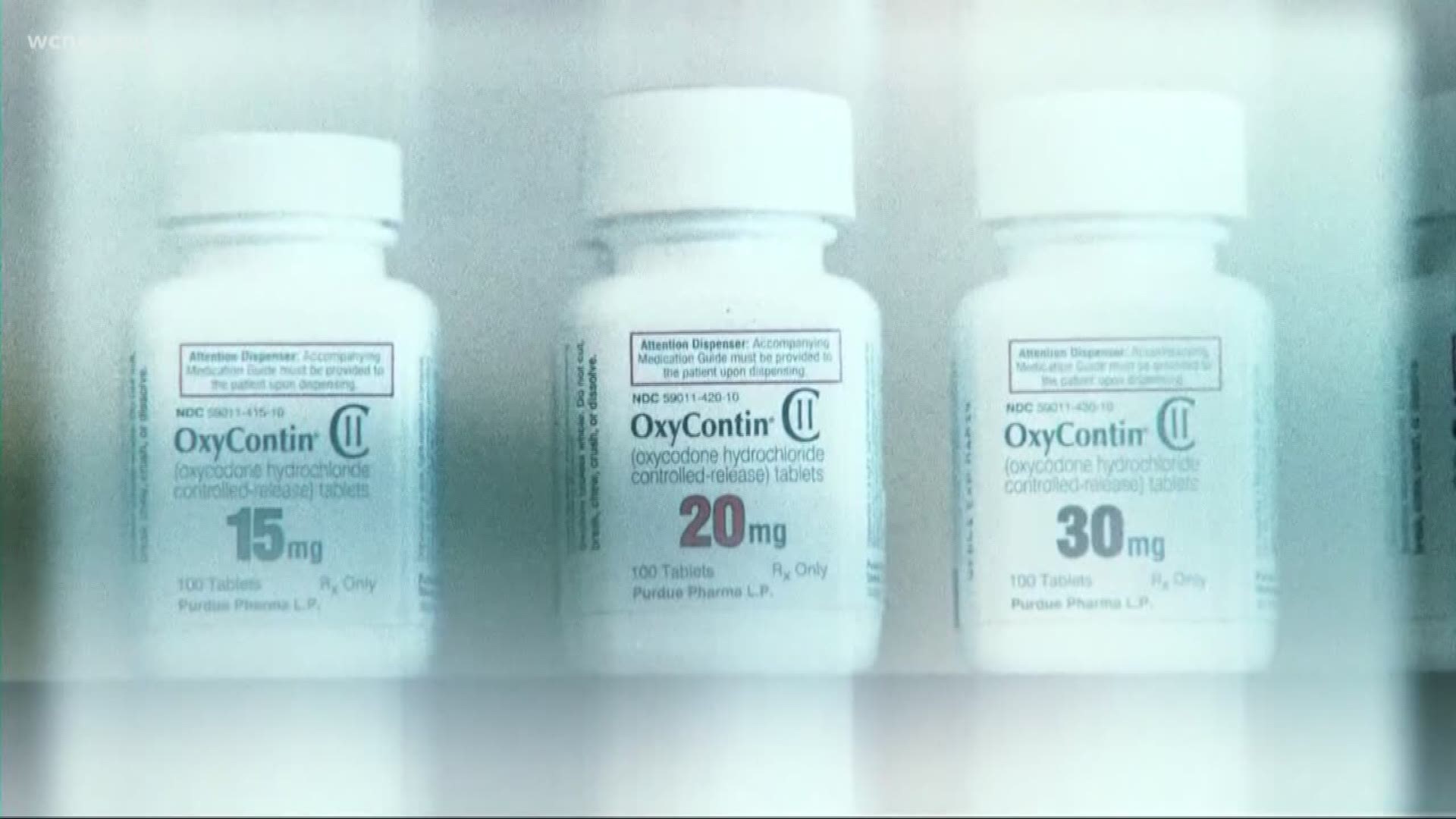HICKORY, N.C. — For the first time, a federal database that tracks the path of every pill sold in the United States is being made public. The numbers are staggering.
The Washington Post published the database after a lengthy court battle.
The paper found 76 billion prescription pain pills were distributed across the country from 2006 through 2012. That includes 2.5 billion pills in North Carolina -- that breaks down to 41 pills per year for every man, woman, and child in the state.
The data also shows a pharmacy in Hickory distributed more opioids than any other pharmacy in North Carolina.
It also shows that the counties receiving the most of these pills are in the foothills and mountains -- the areas we know are hardest hit by this crisis
"This is an issue that either affects somebody that most people know or it affects somebody that somebody they know knows," said Steven Rich with the Washington Post.
The Washington Post obtained and published a county-by-county database from the Drug Enforcement Administration, showing where every oxycodone and hydrocodone pill was sent in the United States from 2006 to 2012.
Steven Rich is one of the reporters who published the database
"We really wanted to put in perspective and in context how your communities were affected by the number of pills that flowed into them," Rich said.
Mecklenburg County fell well below average at just over 22 pills per person per year, but a short drive up Highway 16, more than 67 million pain pills flowed through Catawba County from 2006 to 2012. That's an average of 62 pills per person per year.
The county is home to a pharmacy that received more oxycodone and hydrocodone pills than any other pharmacy in our state. Omnicare Pharmacy of Hickory received more than nine million pills in six years
Watch the full report on NBC Charlotte at 11 p.m. Wednesday night.
CVS Health owns the pharmacy and told NBC Charlotte that Omnicare tends to have a higher volume of business than typical retail pharmacies because it doesn't serve directly to customers -- only skilled nursing and assisted living facilities.
The company says its Hickory location is one of its larger pharmacies in the region.
In a statement to NBC Charlotte, CVS Health said:
"Omnicare provides long term care (LTC) pharmacy services to clients nationwide. For context, Omnicare pharmacies generally only fill prescriptions for large institutional clients, such as nursing homes, which are subject to regular, on-site medical care. An Omnicare pharmacy typically has a larger scale of business than a retail pharmacy due to the number of patients being served by its clients. This is especially true for Omnicare of Hickory, which is one of the larger LTC pharmacies in the region.
Also, during the time period covered in the DEA’s database information, LTC pharmacies primarily served skilled nursing facilities, which routinely admitted patients discharged from hospitals after being treated for fractures, hip and joint replacements or traumatic injury. When these conditions require opioid analgesic therapy, a professional nurse determines that an opioid is necessary to treat pain, pursuant to a physician’s prescription for the opioid. A monthly review is also conducted with consultant pharmacists and recommendations consistent with CMS guidance on medication in skilled nursing environments is provided to prescribing physicians and facility directors."
Rich says just because a pharmacy receives so many pills doesn't necessarily mean something's wrong, but it does increase the chance these pills end up in the wrong hands.
"There was a greater risk of these pills hitting the black market, not that they did, but these two drugs, hydrocodone and oxycodone, were the ones that were the most diverted at the height of the crisis to the black market," Rich said.
State data shows Catawba, Burke and Caldwell Counties have some of the higher opioid death rates in the Tar Heel State.

